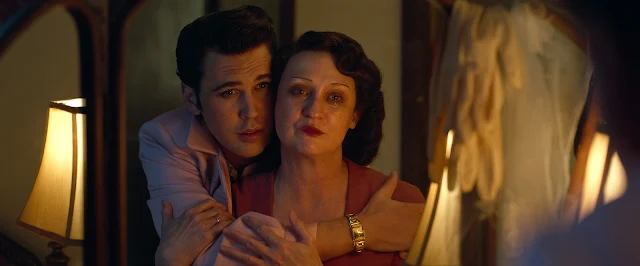Cast: Chang Chen, Gong Li, Feng Tien, Chun-Luk Chan, Jian-Jun Zhou. Screenplay: Wong Kar-Wai. Cinematography: Christopher Doyle. Production design: William Chang. Film editing: William Chang. Music: Peer Raben.
Wong Kar-Wai’s The Hand was made as a segment for an anthology film called Eros, which also included films by Michelangelo Antonioni and Steven Soderbergh, neither of which were critically well-received. But The Hand has since been released by itself in an extended version, although it remains somewhere between the length of a feature and that of a short subject, just under an hour, so it’s rarely shown except to film classes or at festivals – or in my case, on the Criterion Channel. It should be better known, because it’s an exquisite sample of the director’s art, a languorously beautiful exploration of a relationship. It’s at the other end of the spectrum of Wong’s work from his raucous excursions into the world of Hong Kong youth, As Tears Go By (1988) and Chungking Express (1994). It has more in common with what some think is his masterpiece, In the Mood for Love (2000), the intensely poignant study of a doomed love affair. There is hardly even an affair in The Hand, the story of a courtesan and the tailor who makes her dresses. When Zhang (Chang Chen) first meets Miss Hua (Gong Li), she is at the peak of her success at attracting wealthy clients. Amused by the diffident young tailor’s apprentice, she imperiously orders him to take off his trousers and gives him a hand job. Over the years, her fortunes decline, but Zhang continues to make her dresses and eventually pays the rent for her room in a fleabag hotel. The film is framed by their last meeting, in which it’s clear that Miss Hua is dying, possibly from an STD. We see part of this final encounter at the start of the film, in which the camera focuses only on Zhang’s face – we don’t see her until the film flashes back to that first meeting and begins its story of their intertwined careers. Beautifully shot by Wong’s frequent collaborator, Christopher Doyle, the film also benefits from a score by Peer Raben, who had a similarly productive collaboration with Rainer Werner Fassbinder.


























































